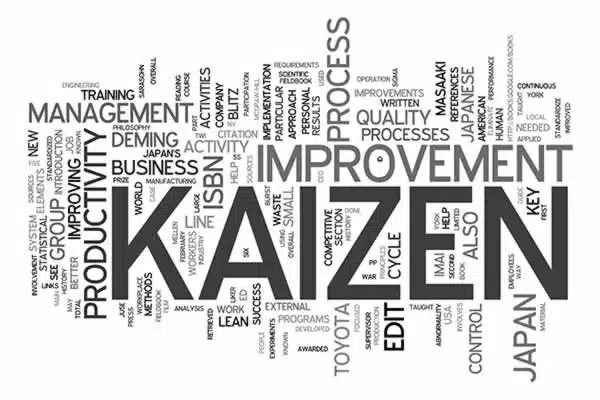Kaizen, the Japanese philosophy centered around continuous improvement, has long been a transformative force in business practices worldwide. Its fundamental principle is that small, ongoing positive changes can reap major improvements.
In this article, we will explore various Kaizen practices that have propelled businesses toward operational excellence and increased competitiveness. By integrating these practices, organizations can create a dynamic culture of continuous improvement that strives for efficiency and quality in every aspect of business.
Table of Content:
Table of Content
Advantages of Kaizen
Kaizen, the Japanese concept of continuous improvement, holds transformative potential for businesses in Singapore and around the world. By adopting Kaizen principles, businesses can unlock a host of benefits, from operational cost savings to enhanced sustainability.
- Cost reduction: Streamlining operations by identifying and eliminating waste helps reduce expenses and optimize processes.
- Efficiency gains: Continuous improvements in processes boost productivity and throughput, streamlining workflows and optimizing resource use.
- Improved customer satisfaction: A focus on quality and reliability meets customer expectations more effectively, enhancing loyalty and fostering positive referrals.
- Employee well-being: Engaging employees in improvement initiatives creates a more satisfying and productive work environment, attracting and retaining top talent.
- Increased sustainability: Kaizen encourages sustainable practices, like reducing energy use and waste, contributing to environmental stewardship.
While the benefits are substantial, implementing Kaizen is not without challenges. These include gaining the full support of management and securing employee buy-in, both of which are crucial for sustaining improvement initiatives.
The Five Foundational Principles of Kaizen
Bridging the gap between ambition and performance, the philosophy of Kaizen centers on continuous improvement across various operational facets. Here are the core objectives of Kaizen that guide businesses towards achieving operational excellence:
- Quality control: At the heart of Kaizen, QC report ensures that products and services consistently meet or surpass customer expectations, thereby enhancing the company’s reputation and securing a competitive market advantage.
- Just-in-time delivery: This principle prioritizes timely production and delivery, aligning closely with customer demands. By minimizing inventory and streamlining processes, companies enhance efficiency and responsiveness.
- Standardized work: Kaizen advocates for a uniform approach to tasks to minimize process variations. Standardization ensures consistency, elevates quality, and enables employees to pinpoint and resolve inefficiencies.
- Efficient equipment: Investing in modern machinery and technology is crucial under Kaizen. This approach helps eliminate production bottlenecks, reduces downtime, and boosts overall productivity.
- Waste elimination: Identifying and removing non-value-added activities is fundamental to Kaizen. This not only cuts costs but also optimizes resource use, fostering a lean and more efficient operation.
By embracing these five principles, businesses can not only make incremental changes that significantly enhance productivity, quality, and customer satisfaction but also foster a culture where continuous improvement is the norm.
Implementing Kaizen in Your Business
When it comes to implementing kaizen in your business, a systematic approach is crucial for success. Here’s how to do it:
- Secure management commitment: Get top-level buy-in and align kaizen with strategic objectives.
- Gain employee buy-in: Engage employees by communicating benefits, providing training, and fostering a collaborative environment.
- Keep momentum going: Regularly monitor progress, celebrate wins, and incorporate feedback to sustain kaizen efforts.
- Adapt best practices: Learn from real-world applications of kaizen and adapt best practices to your business context.
Following these steps will help unlock the transformative potential of kaizen, driving continuous improvement and long-term success.
Conclusion
Kaizen stands as a powerful philosophy that has transformed businesses worldwide through its commitment to continuous improvement. By integrating Kaizen practices, businesses can foster a culture that relentlessly seeks efficiency and quality in operations.
HashMicro recognizes the significance of Kaizen in driving operational excellence and competitiveness. HashMicro ERP software solutions are designed to support businesses on their Kaizen journey by providing the tools needed to streamline processes.
Unlock the transformative potential of Kaizen with HashMicro software and embark on a journey towards continuous improvement and long-term success. Get the free demo today!


































